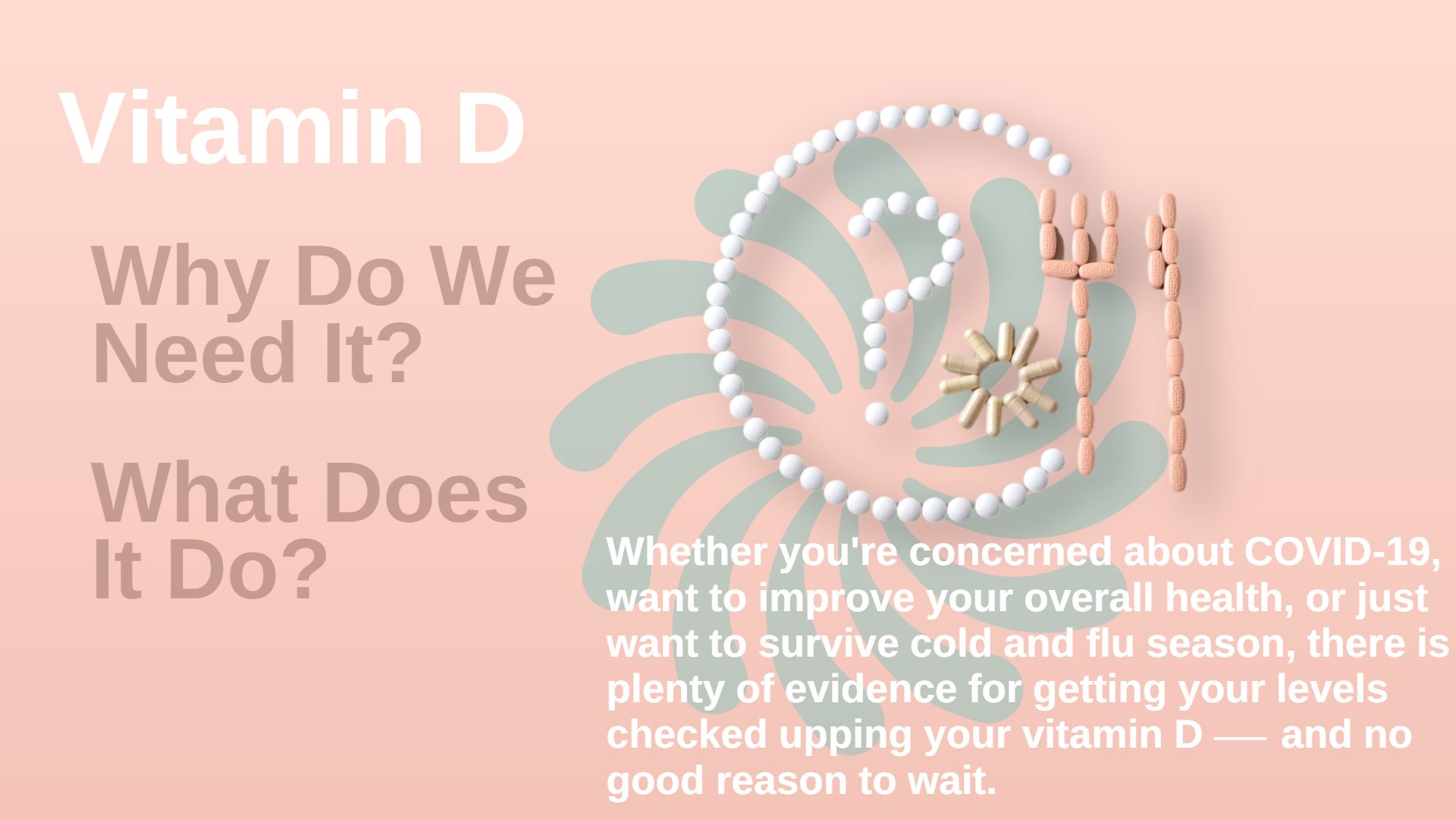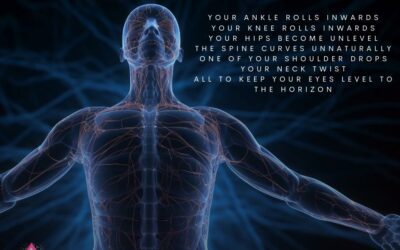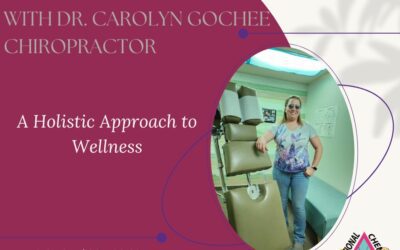Recently there has been an article floating around on social media with the headline: “Studies Suggest 4 Vitamins to Lower the Risk of Severe Cases of COVID-19.” There have been other mainstream media posts about a study done at a hospital in Spain and published in The Journal of Clinical Endocrinology & Metabolism. The study states that over 80% of the people who were severely sick with COVID-19 had low vitamin D levels, below 30 ng/mL. Many of the people in the study actually had levels below 20 ng/mL!
So why is vitamin D so important? It was never a common bio marker check with routine blood draws until Oprah Winfrey started talking about it after the turn of the century. Then it seemed like everyone was getting their vitamin D levels checked and medical doctors started becoming a little more educated on the importance of vitamin D, beyond simply adding it to cow’s milk to make our bones strong. Do you know why vitamin D is so important to your overall health? Do you know how to check to see if your body is absorbing vitamin D from the sun? Do you know where to find other good sources of vitamin D to help keep you healthy? I hope to answer those questions and more in this blog post.
As long as I can remember, cow’s milk has been fortified with vitamin D. Did you know that particular form of vitamin D is an inactive form and cannot be utilized by our bodies? (4) Also, we are finding through genetic research that the vitamin D Receptors (VDR) are being damaged, and humans can no longer absorb vitamin D from the sun as was recommended in the past. We used to be able to spend 20 minutes a day in the sun and get all the vitamin D we needed; but times have changed, and those receptors have been damaged by EBV (Epstein Barr virus), CMV (cytomegalovirus), Borrelia burgdorferi (spirochetes that cause Lyme disease), electromagnetic radiation, and Gliotoxin (produced by many fungi). (5)
What is vitamin D? Vitamin D is a fat-soluble vitamin. Some research refers to it as a hormone, made in the liver and the kidneys. What makes vitamin D so important? Research has shown that vitamin D assists in multiple pathways in the body and that it helps with the prevention of viral infections, chronic diseases, neurological disorders, autoimmune disease, and inflammation — and the list continues to grow. Vitamin D is very important in immunity because of how it works with that pathway and aids in the transcription of at least 913 genes. It stimulates the secretion of antiviral peptides which improves mucosal defenses. (5). In lay terms, it makes your body work better to ward off infectious diseases, including the common cold.
There is one publication stating that 9 out of 10 COVID-19 deaths had low vitamin D levels. (6) Although the publication’s authors admit it’s hard to make a direct link, it does make one wonder: How important is vitamin D for a person’s overall health? There have also been a lot of other murmurings that not all of the reported COVID-19 deaths are accurate, and that almost everyone who allegedly died of COVID-19 had some other underlying condition or illness. Well, if elevated dose of vitamin D would help with eliminating autoimmune disease symptoms, reducing bacterial induced inflammation, (7) age-dependent cognitive decline, Alzheimer’s disease and neurodegeneration; (8) improving musculoskeletal health; and reducing the risk of chronic illnesses, including some cancers, autoimmune and infectious diseases, type 2 diabetes mellitus, neurocognitive disorders, and general mortality; (9) then why are not everyone taking Vitamin D every day and in an elevated dose?
What about children? Do we need to worry about our children’s vitamin D levels? The answer is “yes.” In a recent study of infants and toddlers, 40% had levels below lab standard values. (10)
Could this be why it seems like every new generation seems to be sicker? Could we as a population have such low vitamin D levels that our children are born deficient, causing more autoimmune diseases, learning disabilities, and a high infant mortality rate?
In private practice and in my years of studying Functional Medicine/Functional Blood Chemistry, optimal ranges of vitamin D should be above 50 ng/mL. That is 20 ng/mL above the conventional lab values. I have tested the vitamin D levels of hundreds of patients in my lifetime; over 80% were deficient in vitamin D, including many who spent more than 20 minutes per day outdoors. Those not deficient were on a vitamin D supplement regimen.
There are many things we can do to help ensure we have proper levels of vitamin D.
- Get outside:
Spending time outside will help expose you to UVB rays and raise your Vitamin D levels. Fresh air is good for you as well. It is stated that you only need to spend 20 minutes outside to help raise your Vitamin D levels, but any amount of sun exposure is helpful, even if it doesn’t provide all the vitamin D you need. - Get your vitamin D levels tested:
I offer a variety of ways to check vitamin D levels, including a venipuncture blood test for about $25 and a finger prick test for $50. - Try to eat more food that has naturally occurring vitamin D:
Wild caught salmon, herring, sardines, tuna, egg yolks, and mushrooms. The amount of vitamin D is low, and hard to eat a sufficient amount in order to raise your levels significantly. - Supplement:
After getting your test results, find a good, whole-food vitamin D supplement. I recommend a whole-food source for vitamins because our bodies know how to utilize food. Some vitamins are synthetically made and can cause other issues for the body. Also, like everything else, you get what you pay for when it comes to vitamins. A cheap price typically means poor quality. I offer a wide variety of food-based sources of vitamin D in my practice to help fit my patients’ needs. - Get an expert opinion:
Consult a healthcare expert about the appropriate amount of vitamin D you should be taking. Make sure the expert is knowledgeable about the ever-growing research regarding vitamin D.
Whether you’re concerned about COVID-19, want to improve your overall health, or just want to survive cold and flu season, there is plenty of evidence for getting your levels checked upping your vitamin D — and no good reason to wait. 🙂









0 Comments